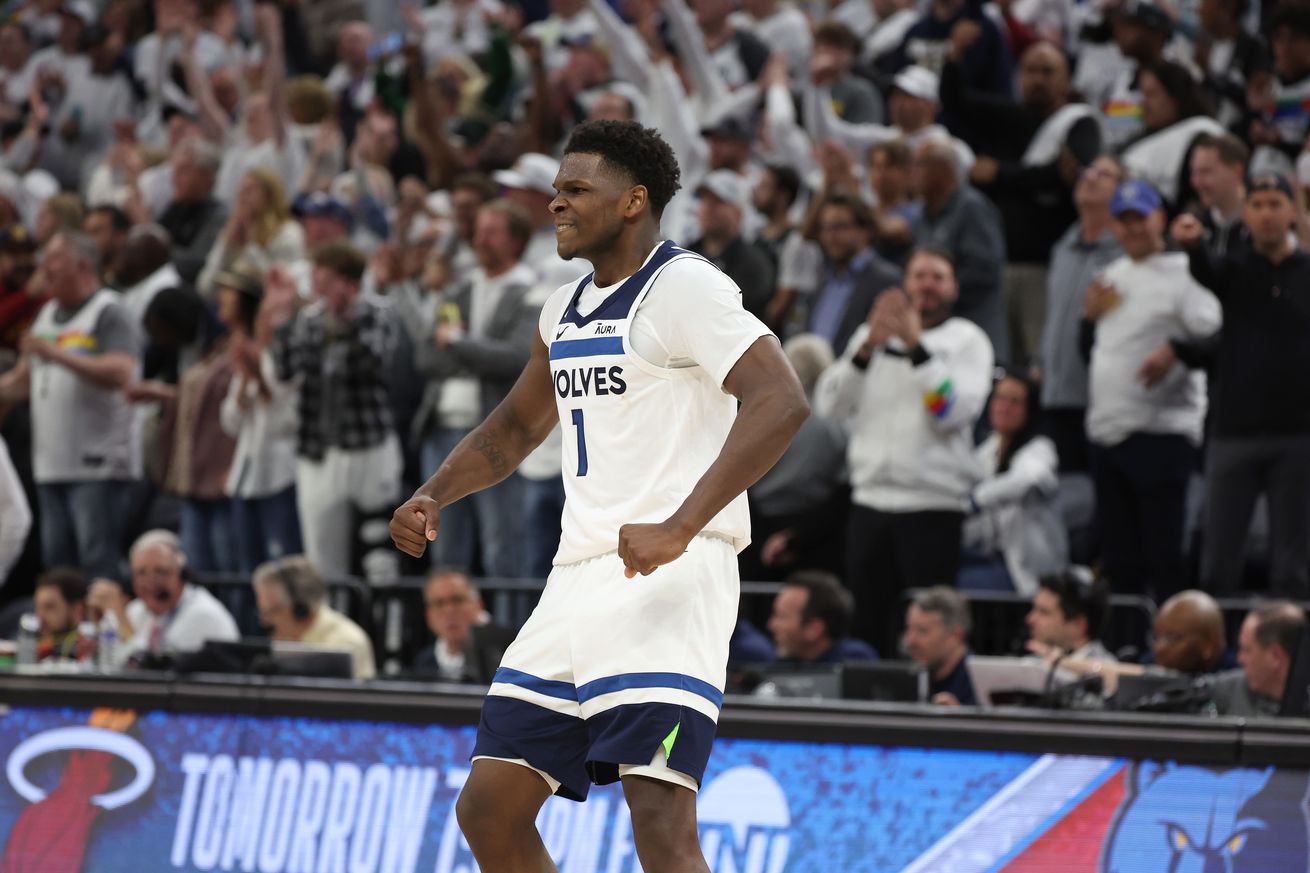Photo by Gregory Shamus/Getty Images
The Timberwolves’ 21-year-old stud had one of the best playoff debuts ever.
Anthony Edwards was breathtaking during the Minnesota Timberwolves’ first-round series, as in five games, he averaged a slash line of 31.6 points, 5.0 rebounds, 5.2 assists, 2.0 blocks, and 1.8 steals per game on 60.2 percent true shooting (3.6 percentage points better than the league average in the playoffs).
And while his team’s adversary in that matchup, the Denver Nuggets, has long since moved on to greener pastures (currently holding a 2-0 lead over the Phoenix Suns), analyzing the totality of Edwards’ performance is important because it could be the beginning of his rise to superstardom.
At just 21 years old, Edwards put up numbers that few players his age or younger have ever seen before. That begs the question: did Edwards just have the best age-21 or younger playoffs ever?
While it is difficult to properly rank all the age-21 and under playoff seasons in history without carefully watching every single one of them (an endeavor that would prove to be quite time-consuming), we do have some statistical indicators we can lean on to help give us a feel of where Edwards’ 2023 Playoffs ranks all-time.
One such metric is Basketball Reference’s one-number catch-all metric box plus-minus (BPM). For those wondering what exactly BPM is, here is a brief description from that measure’s creator, Daniel Myers:
“Box Plus/Minus, Version 2.0 (BPM) is a basketball box score-based metric that estimates a basketball player’s contribution to the team when that player is on the court. It is based only on the information in the traditional basketball box score—no play-by-play data or non-traditional box score data (like dunks or deflections) are included. BPM uses a player’s box score information, position, and the team’s overall performance to estimate the player’s contribution in points above league average per 100 possessions played. BPM does not take into account playing time — it is purely a rate stat!”
With this now understood, here’s what we did with BPM (by “we,” I mean Daniel Bratulic). We took the playoff BPMs of every age-21 or younger player (according to Basketball Reference) that played at least five games and 100 total minutes during their specific playoff run. And here is what the top-10 in BPM (based on that criteria) looks like:
Basketball Reference
Best Age-21 or Younger Playoff BPM (minimum 5 games played & 100 minutes played)
So not the best performance, but second all-time in BPM among players during their age-21 playoffs or younger is not too shabby at all (also, Luka Doncic is a monster!). Cap tip to you, Edwards.
[Sidebar: We also ran the numbers for highest Player Efficiency Rating (PER) and highest Value Over Replacement Player (VORP) during one’s age-21 season or younger (with the same games/minutes minimum), and Edwards finished 2nd and 17th in those categories, respectively.]
Now, there are a couple of caveats that this data comes with. First, Edwards’ statistics could be inflated due to his astronomically low sample size. He played the lowest number of playoff games out of any of the players in the top-10. And second, BPM is a bit biased toward new-age players as the uptick in efficiency has made it easier to put up more gaudy per-100 statistics (100 possessions today is way more efficient than 100 possessions during Marques Johnson’s time).
But still, everyone outside of Vlade Divac that is on this list has been nominated to at least one All-NBA team throughout the course of their career. And that’s a pretty good sign that Edwards is well on his way to becoming a bonafide superstar.













